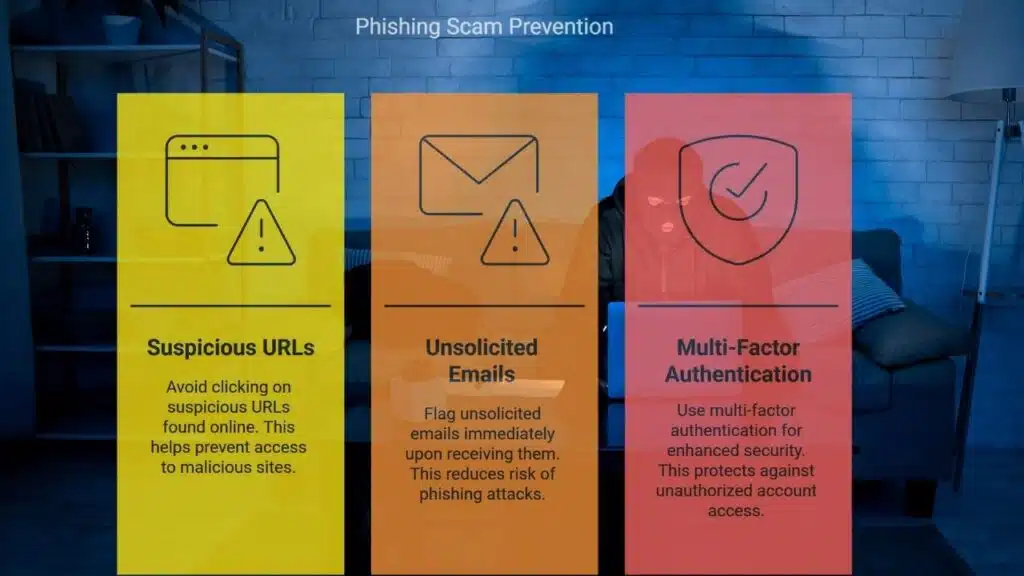The global rise of iGaming is a great thing for all lovers of this popular entertainment, but it doesn’t come without its risks. Today we are going to take a look at the biggest and most common security risks in online gambling, and the ways in which you can prevent or at least mitigate them.
1. Unlicensed and Rogue Casinos
Licensing is the best way to sort the frauds from legitimate, reputable online casinos. Unfortunately, there are iGaming operators who work without proper licenses, and those are a gateway to many cybersecurity risks.
If you’re not sure how to pick a reputable operator, look at the special sections on their homepage, such as the ones provided on the TG Crypto Casino platform. From Privacy Policy to AML Policy, the existence of such features and international standards is a sign that the casino in question is licensed with lucrative bonuses and safety guaranteed by international licensing like Curacao or Malta Gaming Authority. If you are in doubt, keep in mind that rogue casinos usually look too good to be true.
2. Identity Theft
Most online casinos require some amount of personal info during registration. Your details: name, address, birthday, and banking/wallet info can unfortunately be compromised. Operators suffering a data breach can leak your personal data which can further lead to them being used for identity fraud. The best way to prevent these situations is to use gambling venues with reputable licenses and strong policies for data protection.
As an additional layer of security, it is recommended to use a VPN in order to protect your data and financial statements from traffic breaches and hackers. Finally, a casino with proper KYC verification is a good sign of security and responsibility.
3. Phishing Scams
As in other areas of the digital world, phishing is a major threat to cybersecurity in online gambling as well. There have been many instances of fake sites presenting as legitimate casinos that were just a ruse in order to get people’s information. These fraudulent login pages can sometimes come via email or in-game chats. Once the attacker gets ahold of your login credentials, they can usually also exploit your financial info or go a step further and use your identity for further fraud.
The best way to prevent this is to get acquainted with phishing methods. Never click on suspicious URLs, flag unsolicited emails, and make use of multi-factor authentication methods.
4. Hacked or Compromised Accounts
There are other ways than phishing to illegally acquire an account. Hackers will often use brute force attacks or purchase leaked login info from another data breach in order to log in to accounts where financial info is stored.
This is why it’s important to regularly update your passwords and never re-use them. Utilizing a password manager is of great help, especially if it includes a 2FA method as well. Monitor your accounts for any suspicious attempts of logging in and be sure to report any unauthorized logins to customer support.
5. Rigged Games and Unfair RNG
Unlicensed casinos will often use RNG manipulations to tip the odds in their favor, and against the players. Without the licensing authority to oversee these methods, fair play becomes impossible. To make sure you are at the right place, check for certifications of independent testing agencies (eCOGRA, GLI, iTech Labs). Some of these casinos will also try to lure people in with fake prize promises, only to have all of the bonus money quickly swept away through rigged games.
Seeking user reviews for signs of scams is also a good way to check a casino beforehand.
6. Insecure Payment Methods
There are gaming sites with payment gateways that are not secure enough, which makes your wallet info susceptible to data theft. This doesn’t have to mean that the casino is malicious in itself, but you have to keep in mind that outdated payment protocols can lead to issues as well.
While this is a bigger problem not only reserved for iGaming, it’s important to get acquainted with secure payment processors or blockchain verification to keep your money safe.
7. Malware and Spyware
Malicious gambling sites don’t have to steal your info outright, some of them will infect your device in another way. If you are gambling on your phone, fake casino apps can infect it with spyware that will extract your credentials and financial info and possibly steal vast amounts of money.
The best way to avoid this is to install apps only through verified sources like Google Play and Apple App Store. Having an up-to-date antivirus can give you warnings about malware before the damage is made.
8. Lack of Encryption
This may not be obvious off the bat, but SSL encryption is a very important part of security for online gambling. Without it, data is left open for the hackers to intercept and all your personal info becomes highly vulnerable.
To be sure you are using a secure gambling site, check for HTTPS in the URL and the browser icon showing that they have a verified SSL certificate. Using a VPN and avoiding public WiFi networks while gambling is an additional way to keep yourself safe.
9. Withdrawal Scams
Rogue casinos sometimes go for more subtle approaches to scams. One of these is unfair withdrawal conditions. If you ever get asked for excessive wagers as a requirement for play, or experience delays in withdrawal without any explanation – or even the outright refusal to pay out winnings – these are all signs of a scam.
Checking user reviews and carefully reading the terms of service before any deposits is very important to stay ahead of these frauds.
10. DDoS Attacks
While this is mainly a concern for the operators themselves, DDoS attacks can also target the players. While an attack through excessive traffic is ongoing, hackers can use the disruptions and downtime while players can’t log in to cash out their winnings or exploit security loopholes to steal data.
As a player, the best thing you can do to prevent these problems is to choose casinos with good cybersecurity measures, and, if possible, store your funds in e-wallets while not playing.
11. Social Engineering
Sometimes cybercriminals will pose as customer support in order to trick players. Once they reveal their personal info, such as login credentials or payment details, the scammers will extract as much money as possible in a short period of time. These attacks usually happen through email or live chat, sometimes even phone calls.
If you are ever contacted by CS, make sure to verify their identity before sharing your sensitive data. Support staff should always contact you exclusively through official casino channels.
12. Unprotected Mobile Apps
Fake operators will often make unprotected gambling apps on purpose, in order to create openings for data breaches. A gambling app may request unnecessary permissions so it can easily leak your financial or personal info to a hacker working in cahoots with the developer.
As usual, the best way to avoid being scammed in this way is to always go for official app stores. Additionally, always keep your phone system updated in order to cover all discovered vulnerabilities with the latest security patches.


































